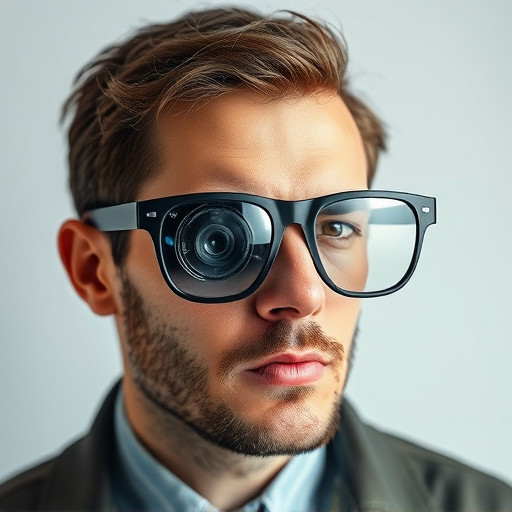Spy glasses with hidden cameras represent cutting-edge surveillance technology, integrating video and audio recording into eyewear for discreet observation. While marketed for security and personal safety, these devices raise legal and ethical concerns due to their potential invasion of privacy. Many regions have laws prohibiting covert recording without consent, and their use can undermine trust and individual autonomy. Balancing security needs with privacy rights is essential as spy glasses technology continues to evolve.
Unveiling the world of secret surveillance, spy glasses with hidden cameras offer a discreet way to capture images and record audio. These innovative devices, often referred to as spy goggles, are packed with advanced technology. From their compact design to high-definition video recording, they provide an all-in-one spying solution. This article delves into the intricate details of these gadgets, exploring their features, legality, and ethical implications. Discover the power of spy glasses with hidden camera capabilities and understand the boundaries they traverse.
Understanding Spy Glasses with Hidden Camera: Features and Functionality
Spy glasses with hidden camera, also known as covert surveillance devices, are a sophisticated blend of technology and discretion. These innovative gadgets combine the functionality of regular eyewear with advanced video and audio recording capabilities, making them ideal for discreet observation. The key feature lies in their ability to capture high-quality footage and sound without drawing attention.
The typical spy glasses include a miniature camera and microphone hidden within the frame, allowing users to record videos or listen in on conversations from a distance. Many models offer features like night vision, motion detection, and long battery life, ensuring versatile and reliable performance. These glasses are not just about capturing images; they provide a comprehensive solution for covert operations, offering real-time video streaming capabilities via a connected smartphone app.
Exploring the Legal and Ethical Aspects of Using Spy Glasses with Audio Recording Capabilities
The rise of spy glasses with hidden camera and audio recording capabilities has sparked a debate surrounding legal and ethical boundaries. These devices, often marketed as tools for surveillance and personal security, raise significant concerns about privacy invasion. In many jurisdictions, using such devices for covert recording is illegal without explicit consent from all parties involved, especially in public spaces. Violations can lead to severe legal repercussions, including fines and imprisonment.
Ethically, the use of spy glasses with audio recording features challenges the trust and transparency that should underpin human interactions. The ability to secretly record conversations without knowledge or permission undermines personal autonomy and could foster an atmosphere of distrust in public and private settings. As technology advances, striking a balance between personal security needs and individual privacy rights becomes increasingly critical for navigating this evolving landscape.
